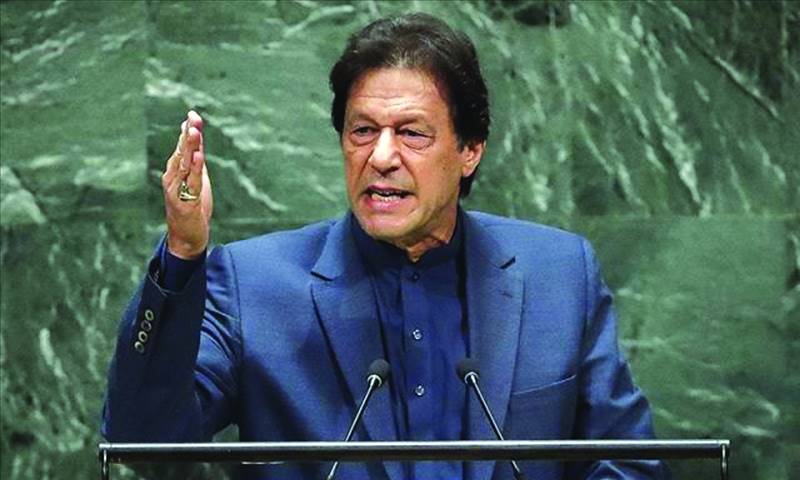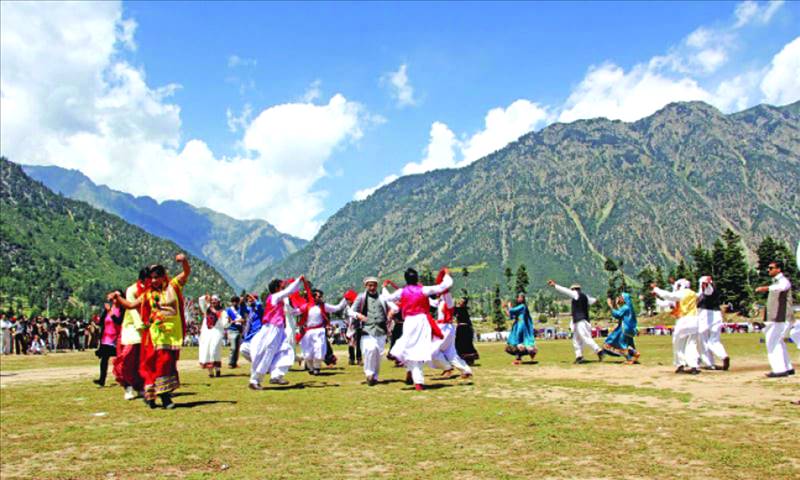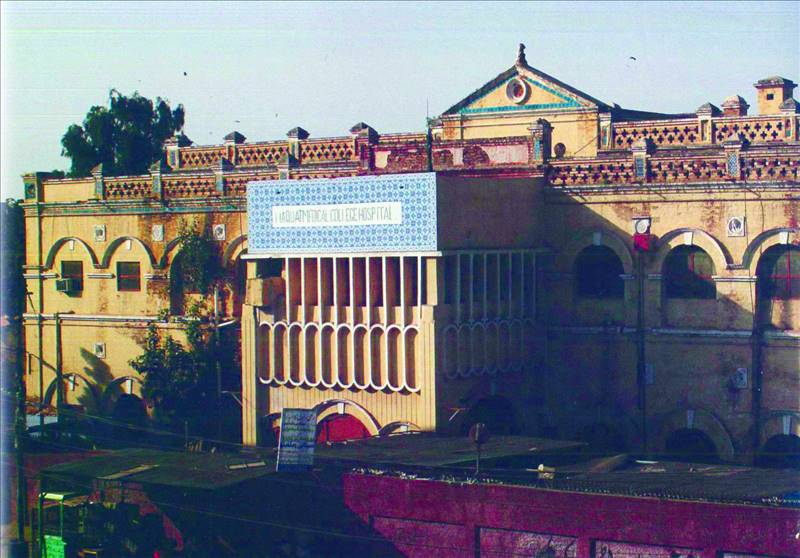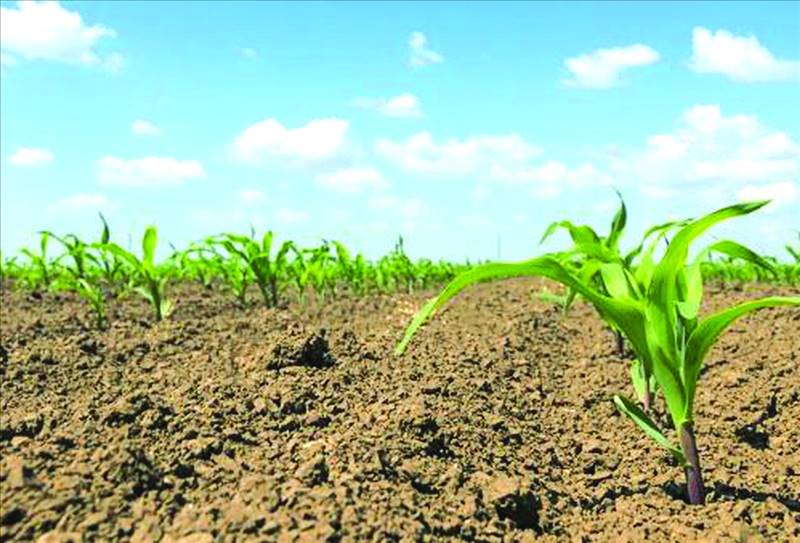
PM’s speech
Madam,
Prime Minister Imran Khan reminded the United Nations of its responsibility towards the nuclear threat. Here, I will paraphrase what American diplomat Adlai Stevenson told the UN General Assembly in 1962. He asked whether the UN was going to wait till hell froze over. This historic speech was in response to Soviet Ambassador’s Valerian A. Zorin’s refusal to answer the question whether the USSR had deployed medium-and intermediate-range missiles in Cuba. In his speech made on October 25, 1962, Zorin had said:
“I am not in an American courtroom, sir. You will have your answer in due course.” Stevenson then proceeded to display the photographic evidence the US had collected through American reconnaissance planes.

The severity of the subcontinent’s nuclear crisis cannot be taken any less seriously than the 1962 Cuban missile crisis. The hydrogen bombs deployed today are 1,000 times more destructive than the nuclear weapons deployed in 1962, and with a much more faster and sophisticated delivery system.
The prime minister aptly highlighted the plight of the Kashmiri people in his address to the UN General Assembly. Now that the world must take notice and the government should conduct a diplomatic campaign utilising the services of experienced diplomats to secure for the Kashmiri people their legitimate right.
The PM’s speech Imran Khan has made the global community aware of the fact that it is India that has been resorting to terrorism with despicable impunity. The nation stands with the prime minister when he said that this is the time not to appease but to take action. Now it remains to be seen if the world can force India to do the right thing and allow the UN to hold a plebiscite in Kashmir.
Bashir Zafar,
Karachi.
Developing Swat
Madam,
In this moment of somewhat heightened environmental consciousness, I wish to point out the ecological vandalism being carried out in my hometown Swat. Over the last decade, Swat has been paraded as a model success story of reclaiming a region from terrorism and as well as miracle of the spirit of development of the state. Swat is packaged as a land on way to development as well as a tourist heaven. But this is far from the truth. There is no denying that there has been restoration of infrastructure - from bridges and schools to roads - but the development projects constitute environmental terrorism for causing irreversible damage to the landscape and the environment.

A highway project piercing all through Swat and to hills of Kalam, though in conceptual and planning phases, is expected to parallel Swat river while being protected by an elevation of the road. This will be a permanent interruption of the scenery and the landscape. The fact that Swat has very limited land and the land near Swat river is the “rice basket” has to be discounted for the sake of “development.” Similarly, road projects to new tourist places do not take into account the damage to pastures and forests which uncontrolled human footprint will bring (and has already brought). There has been cruel deforestation under the Taliban and rather than letting the forest regrow organically with the native species, alien species of trees have been planted because they don’t need much care and they are sure to grow, thus causing damage both to the soil and possibly the water table.
Development and tourism are not things to oppose but the operative term here should be sustainable. Swat river used to be brimming with fish and in upper Swat was home to Swati trout but now there only death flows in the river. The hotel industry is built along the river and all the waste of hundreds of hotels is dumped into it through direct conduits. The infrastructure of the valley can’t absorb the burden of its own population, the cantts and rest houses of army as well as unplanned tourism. The tragedy is talking about these problems has become “anti-state” activity as any criticism of this ecological vandalism, mindless expropriation of resources as well as environmental damage are meant to disrupt the linear, all good narrative and image constructed as part of a success story. But development in Swat has to be opened to critical environmental as well as planning debate.
Sikander Yousafzai,
Peshawar.

Public healthcare
Madam,
The conditions at Civil Hospital in Hyderabad are horrible. The hospital lacks basic facilities like safe drinking water, washrooms and fans. The hospital was built 30 years ago and has obsolete medical instruments that give inaccurate results which creates problems in diagnosis. The dental department lacks proper lights and there are no sterilising chemicals that ensure infection is not spread. Recently, we have seen so many HIV cases in Sindh because of improper sterilisation of instruments at hospitals and barber shops. The Sindh chief minister and health secretary should take note of these issues.
Zunaira Arshad,
Karachi.
Agriculture in danger
Madam,
According to the International Labour Organisation, countries which depend on agriculture are at risk of water shortage. Pakistan is among the list of such countries.
In coming years, the water crisis will aggravate. All those countries which run their economy by selling agricultural products will face high unemployment, inflation, poverty and gaps in incomes. Many countries including Pakistan, Sudan and Yemen will be the first to face global warming effects.

In fact, these countries have already been facing the spectre of global warming in the shape of drought, rise in temperatures, floods and change in crop cycles. Farmers’ income will decline owing to floods and low yield.
The World Economic Forum says there is 40 to 50 per cent employment in the agricultural sector, which is at risk. Symptoms of destruction can be seen in recent floods and rising temperatures.
In order to overcome the consequences of climate change and to save the agro-economy, Pakistan should start water management practices. It should build dams, stop water-logging, and monitor the distribution of water among all provinces. Only this way can Pakistan save not only water but employment too.
Maria Shah,
Lahore.

